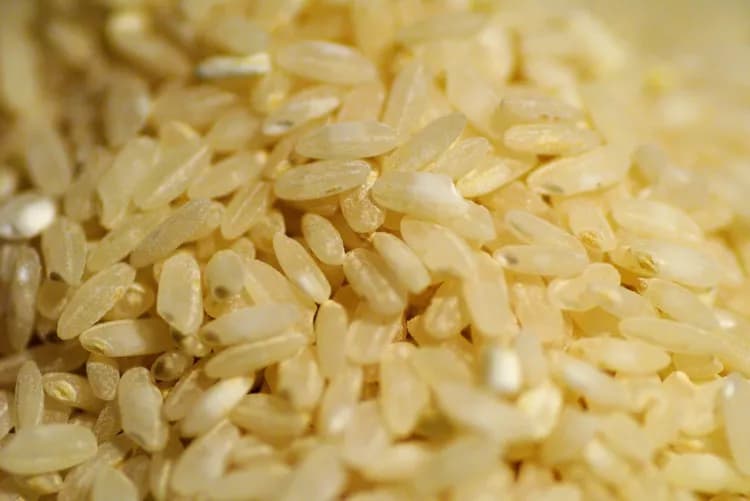
Infants Who Ate Rice, Rice Products Had Higher Urinary Concentrations Of Arsenic
Although rice and rice products are typical first foods for infants, a new study found that infants who ate rice and rice products had higher urinary arsenic concentrations than those who did not consume any type of rice, according to an article published online by JAMA Pediatrics.
Arsenic exposure from rice is a concern for infants and children. Infant rice cereal may contain inorganic arsenic concentrations that exceed the recommendation from the Codex Alimentarius Commission of the World Health Organization and the Food and Agriculture Organization of the United Nations of 200 ng/g for polished white rice, the new European Union regulations of 100 ng/g for products aimed at infants, and the proposed U.S. Food and Drug Administration limit for infant rice cereal.
The consumption of rice in early childhood has not been well described in the United States and there are only limited data from other regions of the world. Some epidemiologic evidence suggests that arsenic exposure in utero and early in life may be associated with adverse effects on fetal growth, and on infant and child immune and neurodevelopment outcomes.
Margaret R. Karagas, Ph.D., of the Geisel School of Medicine at Dartmouth College, Lebanon, N.H., and coauthors examined the frequency with which infants at rice and rice-containing products in their first year of life, as well as the association with arsenic concentrations in the urine.
The current study included 759 infants born to mothers in the New Hampshire Birth Cohort Study from 2011 to 2014. The infants were followed up with phone interviews every four months until 12 months of age. At 12 months, dietary patterns during the past week were assessed, including whether the infant had eaten rice cereal, white or brown rice, or foods either made with rice, such as rice-based snacks, or sweetened with brown rice syrup, such as some brands of cereal bars.
Infant urine samples were collected beginning in 2013 along with a 3-day food diary. More detailed information on diet and total urinary arsenic at 12 months was available for 129 infants, with data on urinary arsenic species available for 48 infants.
The authors report that:
- 80 percent of the 759 infants were introduced to rice cereal in the first year of life with most (64 percent) starting at 4 to 6 months of age.
- At 12 months, 43 percent reported eating some type of rice product in the past week; 13 percent ate white rice and 10 percent ate brown rice at an average of one to two servings per week.
- 24 percent of infants ate food made with rice or sweetened rice syrup in the past week at an average of five to six servings per week
- Based on information recorded in food diaries two days before urine sample collection, 71 infants (55 percent) consumed some type of rice product in the prior two days
Study results indicated that based on 129 urine samples at 12 months, arsenic concentrations were higher among infants who ate rice or foods mixed with rice compared with infants who ate no rice. Also, total urinary arsenic concentrations were twice as high among infants who ate white or brown rice compared with those who ate no rice. The highest urinary arsenic concentrations were seen among infants who ate baby rice cereal; urinary arsenic concentrations were nearly double for those who ate rice snacks compared with infants who ate no rice, according to the study.
The authors note their study group from northern New England using private, unregulated water systems may affect the generalizability of their results. Also, other dietary sources of arsenic, such as apple juice, may further contribute to urinary arsenic concentrations.
"Our results indicate that consumption of rice and rice products increases infants' exposure to As [arsenic] and that regulation could reduce As exposure during this critical phase of development," the study concludes.
The above post is reprinted from materials provided by The JAMA Network Journals. Note: Materials may be edited for content and length.
Disclaimer: DoveMed is not responsible for the adapted accuracy of news releases posted to DoveMed by contributing universities and institutions.
Primary Resource:
Margaret R. Karagas, Tracy Punshon, Vicki Sayarath, Brian P. Jackson, Carol L. Folt, Kathryn L. Cottingham. Association of Rice and Rice-Product Consumption With Arsenic Exposure Early in Life. JAMA Pediatrics, 2016; DOI: 10.1001/jamapediatrics.2016.0120Related Articles
Test Your Knowledge
Asked by users
Related Centers
Related Specialties
Related Physicians
Related Procedures
Related Resources
Join DoveHubs
and connect with fellow professionals

0 Comments
Please log in to post a comment.